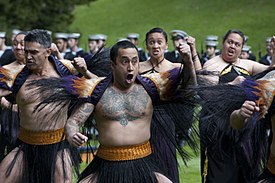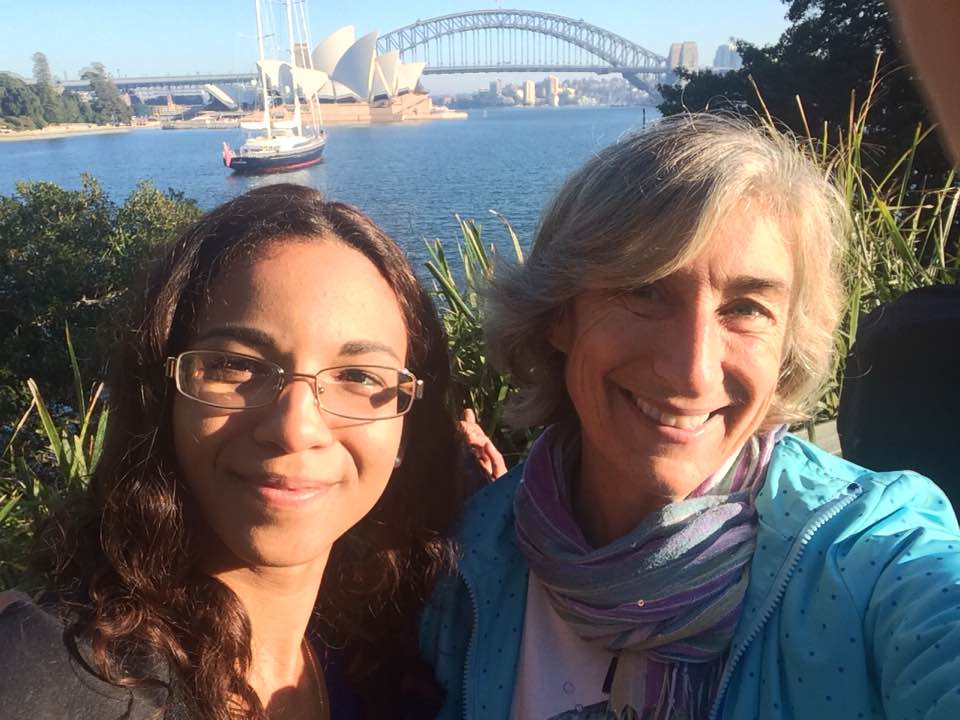SPC Communications Chair, Lillien Tunceren, joined SPC students to explore the cultures of Australia and New Zealand with special emphasis on Aboriginal and Maori experience in 2017: “The cultures of Australia and New Zealand offer a unique opportunity for students to understand their literary conventions and communication practices and juxtapose those practices with other world cultures, including the students’ own” (SPC). Professor Tunceren and company traveled from Sydney to Auckland enjoying highlights that included the magnificent Sydney Harbour bridge and Sydney Opera House (here pictured). Zoos in Australia provided introductions to some of the most famous fauna to be encountered Down Under: koalas, kangaroos, wombats, snakes, and more.

Koala via Wikimedia Commons
Then (Bob’s your uncle!) sheep shearing demonstrations illustrated the importance of sheep to Australian history, culture, and economics.
Travel to New Zealand’s Rotorua offered an introduction to Maori culture: “Maori are the indigenous people of Aotearoa New Zealand, and their story is both long and intriguing. On the basis of oral records, archaeological finds and genetic analyses, historical treatises place the arrival of Maori in New Zealand in the thirteenth century AD. The origin of Maori has been reliably traced to the islands of Eastern Polynesia, and their journey to New Zealand occurred in a number of epic waka (canoe) voyages over a significant period of time. These journeys established Maori as daring and resourceful adventurers, and as one of the greatest navigating peoples of all time. Defining aspects of Maori culture include art, legend, tattoo (moko), performances (notably kapa haka), customs, hospitality and community” (Maori.com).

Maori via Wikimedia Commons
Professor Tunceren and company learned about Maori food, social customs, and even tribal dancing.
Want to be a Maori? Good on ya, mate!
Maori Language Terms
Kia Ora (key-or-a) – hello, goodbye, thank you.
Haere Mai (high-reh-my) – welcome
Haere Ra (high-reh-rah) – goodbye
Whanau (far-no) – family
Whare – house
Ai – Yes
Kau – No
Kai – Food
Kai moana – Seafood
Kia ora tatou — Hello everyone
Tena koe — Greetings to you (said to one person)
Tena koutou — Greeting to you all
Kei te pehea koe? — How’s it going?
Kei te pai — Good
Tino pai — Really good
Ka kite ano — Until I see you again (Bye)
Hei konei ra — See you later
Mana – respect, status earned through actions
(KIWI LINGO)
Ka Pai! – Good Work!
Works Cited
“Maori – Culture, Language, Art and Tattoo.” Maori.com, 2018, https://www.maori.com/
“Maori Language Terms.” KIWI LINGO. Stray Travel, 2018, https://www.straytravel.com/new-zealand-travel-guide/kiwi-lingo/
Cover Image: Courtesy of Dr. Lillien Tunceren

